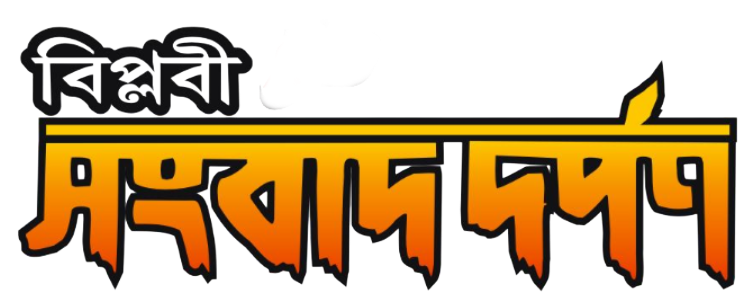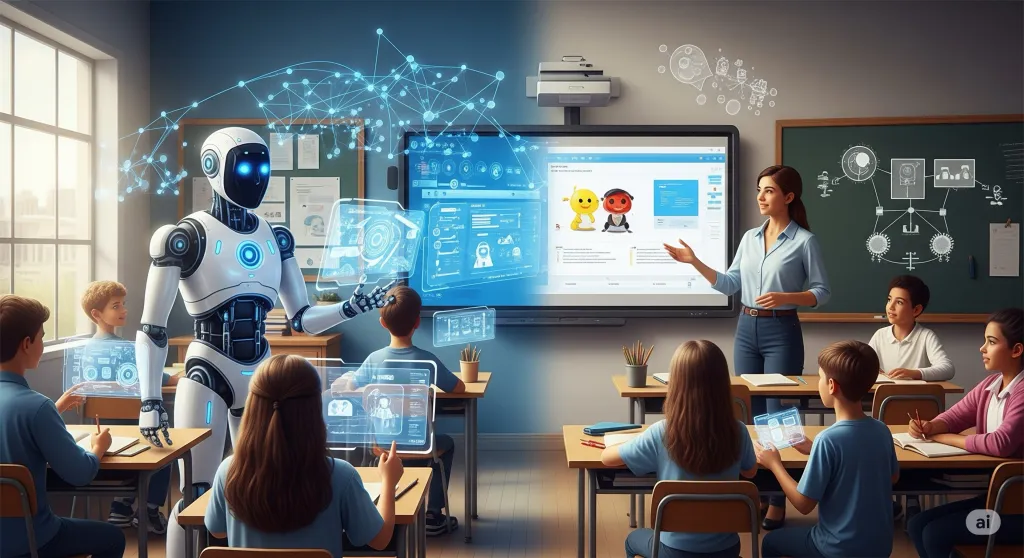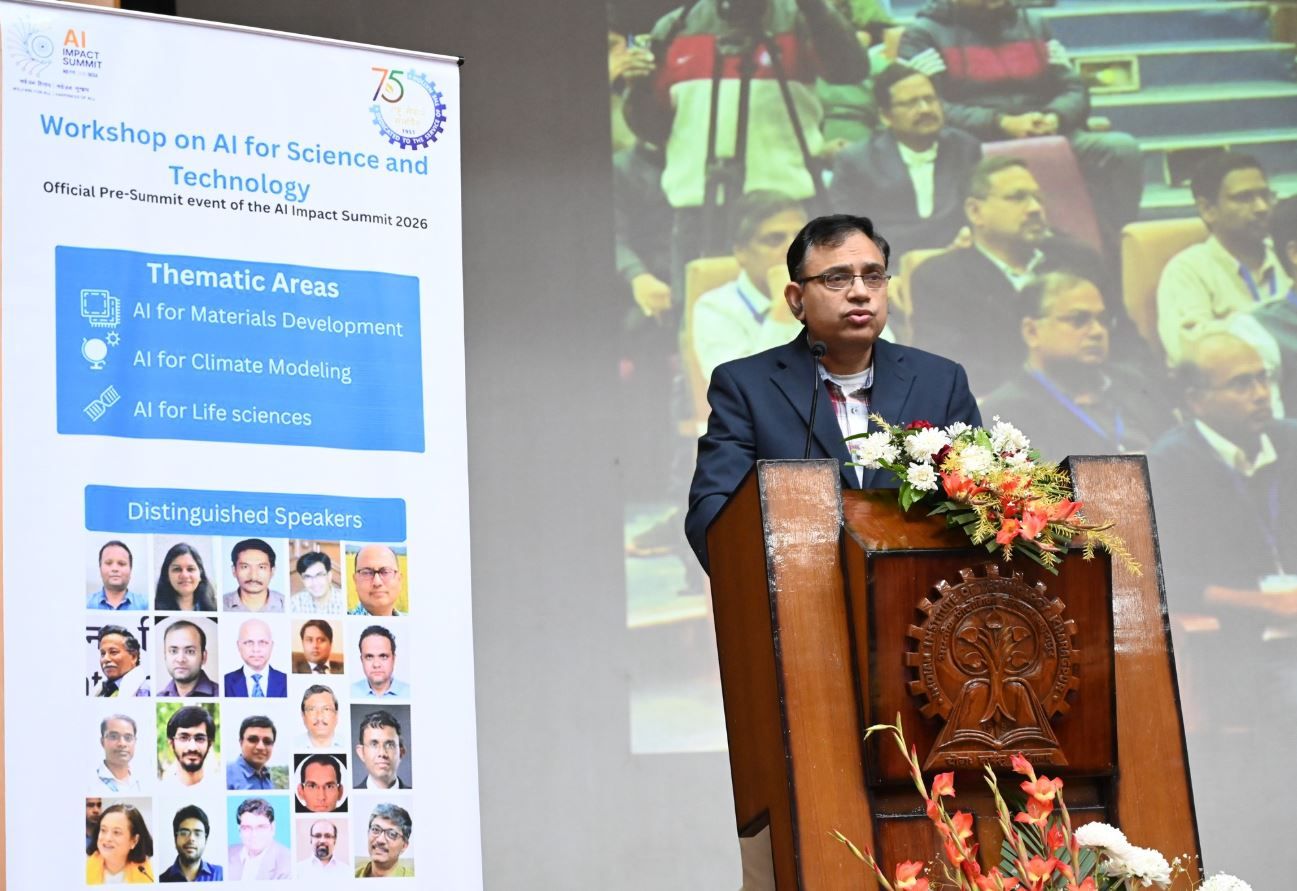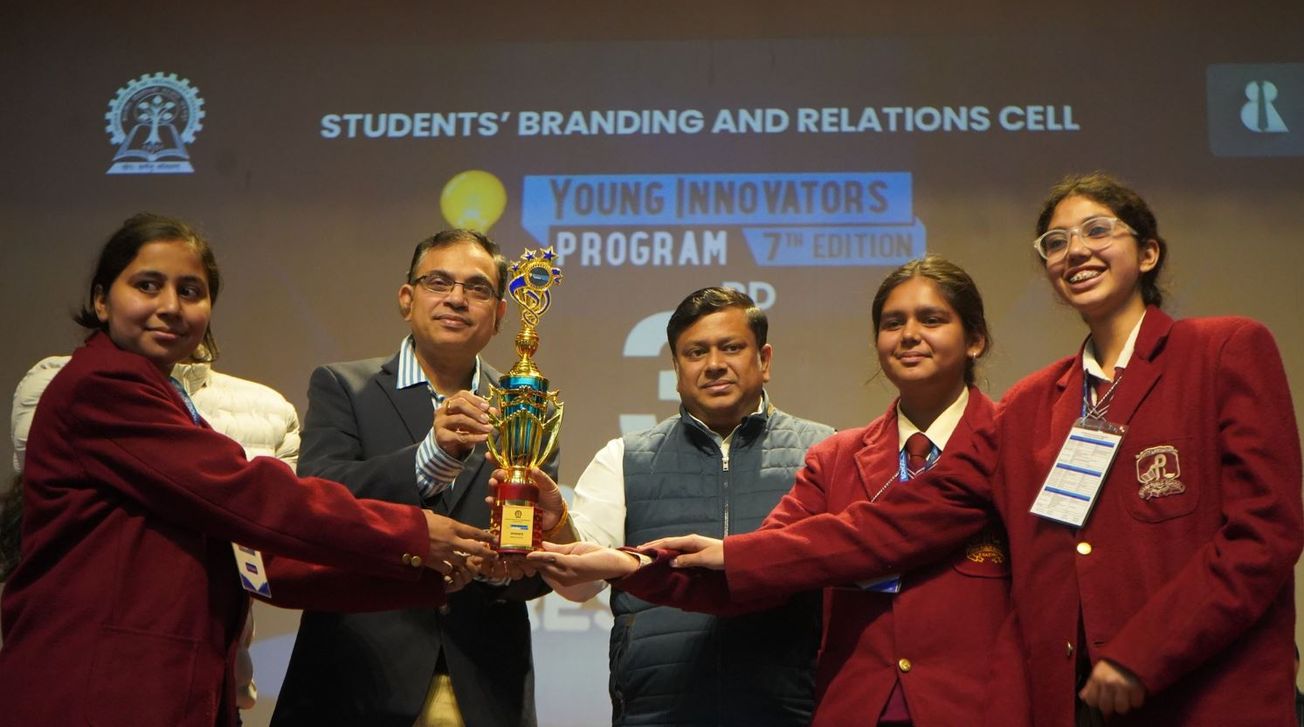Artificial Intelligence (AI) is rapidly transforming the landscape of education, bringing profound changes to how knowledge is created, transmitted and assessed. While the promise of smart automation and personalisation in learning is immense, these advances also raise urgent questions about the preservation of human agency and the future of humane societies in an increasingly automated world. This article explores the intersection of AI and education, evaluating the threats to humanity posed by scientific advancements and examining strategies for safeguarding the human essence in technological society.
The Promise and Peril of AI in Education : AI’s integration into education holds both hope and anxiety. On one hand, AI can complement human creativity, enhance decision-making, personalize learning experiences, and streamline administrative burdens. Smart systems adapt to students’ needs, analyse vast quantities of educational data, and potentially close learning gaps. Technology paves the way for inclusive, equitable education, promising underserved populations access to quality resources. Yet, as systems become automated and machine-driven, concerns rise about the erosion of agency—our ability to make choices, think critically, and shape destinies. Algorithms can codify biases, reinforce inequality, and reduce the role of the educator to a mere facilitator for machine logic. The heart of the matter is not how much AI we employ, but what human values we sustain amid this revolution.
Defining Human Agency in the Age of Automation : Human agency is the capacity to act independently, imagine possibilities, and forge one’s own path. In education, agency means empowering learners to take an active role, explore ideas, ask questions, and create meaning. It is the difference between passively consuming information and actively constructing knowledge.
The rise of AI challenges this paradigm. Automated platforms can turn students into passive recipients of algorithm-driven content, in which creativity, curiosity, and serendipity are filtered and standardised. The essential ambiguity and complexity of human interactions—qualities that nurture empathy, ethical reasoning, and innovation—risk being “programmed out” of our systems.
Threats to Humane Societies
> Loss of Social Fabric: As AI takes over repetitive, routine, and even creative tasks, there is a worrying reduction in face-to-face interaction, dialogue, and collective learning. Educators and learners become untethered from the communal bonds that give learning its meaning.
> Erosion of Autonomous Thought: Overreliance on machines may diminish our capacity for independent judgment, critical analysis and creative problem-solving. If digital assistants decide, recommend and predict for us, the drive for human exploration falters.
> Job Displacement and Inequality: AI threatens to automate a vast array of professions—lower-wage jobs, medicine, law, research and even artistic endeavours—pointing to widespread unemployment and the deepening of socioeconomic divides. Investors and developers reap disproportionate rewards, exacerbating wealth inequalities.
> Surveillance, Manipulation, and Privacy Risks: AI-powered systems collect and analyse personal data on an unprecedented scale, heightening risks of manipulation, surveillance, and exploitation.
> Dehumanisation and Existential Risk: The trajectory of AI development points to autonomous weapons, predictive policing, and forms of artificial general intelligence (AGI) that could fundamentally threaten human existence. The logic of instant response, unthinking automation, and programmed behaviour undermines individual responsibility and ethical action.
.jpg)
The Ethical Imperative: Preserving Humanity This crisis calls for reflection: what should education do to protect human agency and humane societies in the era of AI? Several imperatives emerge—
>Human-Centric Curricula: Educational systems must craft curricula that balance technological literacy with essential human skills—critical thinking, creativity, ethical reasoning, social awareness, and empathy. AI should amplify, not diminish, these qualities.
>Ethical Frameworks and Regulation: Policymakers need to draft robust guidelines for the responsible development and deployment of AI in education, ensuring fairness, inclusion,privacy and respect for human rights.
> Empowering Learners and Educators: Professional development for teachers should focus on integrating AI thoughtfully, while equipping learners to navigate, question, and reinvent technology in critical ways. The goal is not to surrender judgment to machines but to foster a partnership that strengthens human capacities.
> Promoting Digital Inclusion: Equitable access to technology must be prioritised, closing digital divides and preventing new forms of exclusion.
> Continuous Moral and Ethical Renaissance: Education must inspire a moral awakening, urging learners and societies to address the dilemmas posed by automation. This requires active civic engagement, cross-disciplinary dialogue, and a deliberate effort to keep humanity at the core of progress.
Imagining the Future: AI and Humane Society :
As AI reshapes the world, education becomes both the ground and the guide for our ethical response. Will future societies drift toward programmed behaviours, stripped of ambiguity, empathy, and creative possibility? Or will technological advances fuel a new era of human flourishing, in which machines free us for higher-order thinking and compassion?
The answer lies in the choices we make today. Preserving human agency is not only a technical challenge, but a moral and cultural one. We must nurture agency, autonomy, and responsibility at every level—personal, institutional and societal.
Education must itself evolve: teachers need to see themselves as guides of moral, philosophical, and civic reasoning in addition to technical skills. Students and citizens should be prepared for a world where the boundaries between human and machine blur, yet where their voice, judgment, and empathy remain vital. Lifelong learning will become indispensable, as change accelerates and knowledge flows from many sources.
Societies that thrive in the age of AI will be those that put people—not machines—first. They will invest in human-centred innovation, respect diversity of knowledge, and renew commitment to solidarity and democracy. The future of AI belongs not to automation, but to those who preserve and celebrate the essential qualities that make us human.

Education as a Bulwark for Humanity : Education is the foundation of innovation, shaping a safer, smarter, and more inclusive world. By actively preserving human agency, developing ethical frameworks, and resisting the reduction of complex societies to algorithmic systems, we can harness the potential of AI without sacrificing our humanity. The challenge, in the end, is not simply technical—it is a question of what sort of society we wish to create, and what kind of humans we aspire to be.
As science advances and AI revolutionises education, the humane society stands at a crossroads. The preservation of agency, dignity, and compassion is not just possible—it is essential. Through wise, critical, and courageous educational practice, humanity can shape a future in which technology elevates, rather than erodes, the very essence of who we are.









